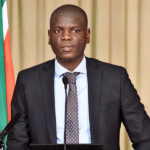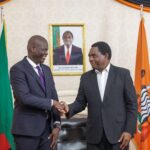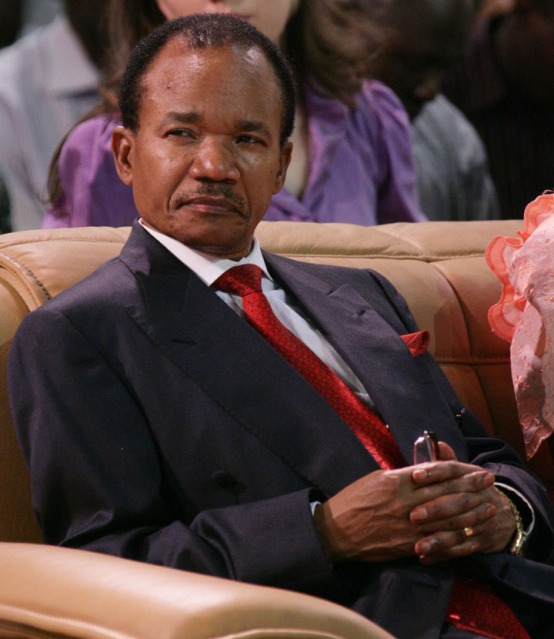Frederick Chiluba, Zambia’s second President, played a pivotal role in the country’s transition from one-party rule to a multi-party democracy. His presidency, from 1991 to 2002, marked a significant period in Zambia’s political and economic history. Known for his role in dismantling the one-party state and introducing economic reforms, Chiluba’s legacy is a subject of considerable debate and reflection. Here are 20 essential things to know about Frederick Chiluba and his impact on Zambia.
1. Early Life and Education
Born on April 30, 1943, in the rural town of Ndola, Frederick Chiluba grew up in a modest background. He received his primary and secondary education in Zambia and later pursued higher education in economics at the University of Zambia.
2. Trade Union Leadership
Before entering politics, Chiluba was a prominent trade union leader. He became the President of the Zambia Congress of Trade Unions (ZCTU) in the 1970s, where he gained a reputation as an advocate for workers’ rights and political reform.
3. Opposition to One-Party Rule
Chiluba emerged as a vocal critic of the one-party state under President Kenneth Kaunda. His leadership in the ZCTU provided a platform for challenging the regime and advocating for political change.
4. Founding the Movement for Multi-Party Democracy (MMD)
In 1990, Chiluba founded the Movement for Multi-Party Democracy (MMD) as a political party dedicated to ending one-party rule and promoting democratic governance. The MMD quickly became a major force in Zambian politics.
5. Presidential Election Victory
Chiluba led the MMD to a decisive victory in the 1991 presidential elections, defeating the incumbent President Kenneth Kaunda. This election marked the end of Zambia’s one-party state and the beginning of multi-party democracy.
6. Economic Reforms and Privatization
Chiluba’s presidency was characterized by significant economic reforms, including the privatization of state-owned enterprises. His administration aimed to transition Zambia from a centrally planned economy to a market-oriented one.
7. Structural Adjustment Programs
Under Chiluba, Zambia implemented structural adjustment programs (SAPs) in collaboration with international financial institutions like the IMF and World Bank. These programs aimed to stabilize the economy but were also criticized for their social impact.
8. Political Reforms
Chiluba’s government introduced several political reforms, including a new constitution that allowed for multi-party elections and a more competitive political environment. These reforms were pivotal in establishing democratic norms in Zambia.
9. Health and Education Investments
Chiluba’s administration invested in health and education, with efforts to improve infrastructure and access to services. However, the effectiveness of these investments was mixed and faced various challenges.
10. Controversies and Corruption Allegations
Chiluba’s presidency was marred by allegations of corruption and mismanagement. He faced accusations of embezzling public funds and abusing his position, which led to numerous legal and political controversies.
11. Re-election and Term Limits
Chiluba was re-elected in 1996, but his presidency faced significant opposition and scrutiny. His attempts to amend the constitution to extend his term limit were met with resistance and criticism from various quarters.
12. Legal Challenges and Trial
After leaving office, Chiluba faced legal challenges related to corruption and misappropriation of funds. He was tried and convicted in several cases, though his legal battles were often contentious and politically charged.
13. Economic Challenges
Despite initial economic gains, Chiluba’s presidency faced economic challenges, including inflation and unemployment. The impact of his economic policies and reforms was subject to debate, with mixed results in terms of economic growth and social development.
14. Foreign Policy and Relations
Chiluba’s foreign policy focused on strengthening Zambia’s relations with both regional and international partners. He worked to enhance Zambia’s position in regional organizations and foster international cooperation.
15. Post-Presidency Life
After his presidency, Chiluba remained an influential figure in Zambian politics and public life. He continued to be involved in various political and social activities until his death.
16. Death and Legacy
Frederick Chiluba passed away on June 18, 2011. His legacy is a complex one, marked by both significant achievements in democratization and controversies related to corruption and governance.
17. Legacy of Democratic Transition
Chiluba is often credited with playing a crucial role in Zambia’s transition to multi-party democracy. His leadership during this period helped to pave the way for a more democratic political system.
18. Impact on Economic Policy
Chiluba’s economic policies, including privatization and structural adjustments, had a lasting impact on Zambia’s economy. While intended to stimulate growth, these policies also sparked debate about their social and economic effects.
19. Influence on Zambian Politics
Chiluba’s tenure influenced Zambian politics by establishing a multi-party system and altering the political landscape. His presidency set the stage for subsequent political developments and party dynamics.
20. Historical Assessment
Chiluba’s presidency continues to be assessed and debated by historians and political analysts. His contributions to Zambia’s democratic transition are weighed against the controversies and challenges that characterized his time in office.
Frederick Chiluba’s presidency was a transformative period in Zambia’s history, marked by significant political and economic changes. His efforts to dismantle the one-party state and introduce democratic reforms had a profound impact on the country’s political landscape. However, his tenure was also marred by controversies and challenges that continue to shape discussions about his legacy. Understanding Chiluba’s contributions and the complexities of his presidency provides valuable insights into Zambia’s evolution as a democratic nation.






